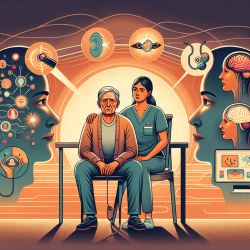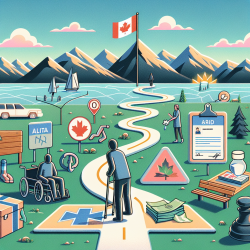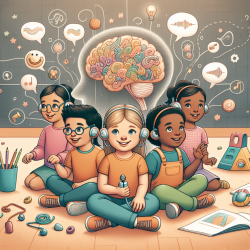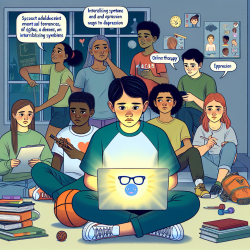Behavioral speech and language therapy (SLT) remains the cornerstone of aphasia treatment. SLT approaches can be broadly categorized into:
- Impairment-based approaches: These focus on reducing language impairments through structured therapy targeting phonology, lexical-semantics, or syntax.
- Functional communication approaches: These emphasize improving communication abilities without necessarily focusing on reducing language deficits.
Recent studies have highlighted the efficacy of SLT, especially for chronic aphasia. A Phase III randomized controlled trial by Breitenstein et al. supports the use of impairment-based SLT to improve verbal communication and quality of life. Meta-analyses also confirm that SLT is beneficial for aphasic patients.
Timing of intervention is crucial. While early intervention in acute aphasia shows mixed results, more SLT in the chronic phase is associated with greater long-term recovery. A study revealed that chronic stroke patients who received more SLT sessions showed improvement in language processing over several years.
Predicting therapy outcomes remains a challenge. Factors such as age, education, and aphasia severity influence SLT outcomes. Preliminary results from the POLAR trial indicate that overall aphasia severity and participant age are significant predictors of therapy success.
Emerging evidence suggests that noninvasive brain stimulation, such as transcranial direct current stimulation (tDCS) and repetitive transcranial magnetic stimulation (rTMS), can augment SLT outcomes. For instance, anodal tDCS over left hemisphere language areas has shown to improve language functions when paired with SLT.
Telerehabilitation and computerized therapy are promising avenues to increase access to aphasia therapy. Studies have shown that telerehab can be as effective as in-person SLT, and computerized therapy can enhance naming abilities in aphasia.
To stay ahead in aphasia therapy, practitioners should consider:
- Incorporating both impairment-based and functional communication approaches in SLT.
- Advocating for more SLT sessions, especially for chronic aphasia patients.
- Exploring noninvasive brain stimulation techniques to augment SLT.
- Utilizing telerehabilitation and computerized therapy to increase access to treatment.
By implementing these strategies, practitioners can significantly improve the quality of life for individuals with aphasia.
To read the original research paper, please follow this link: Current Approaches to the Treatment of Post-Stroke Aphasia.










